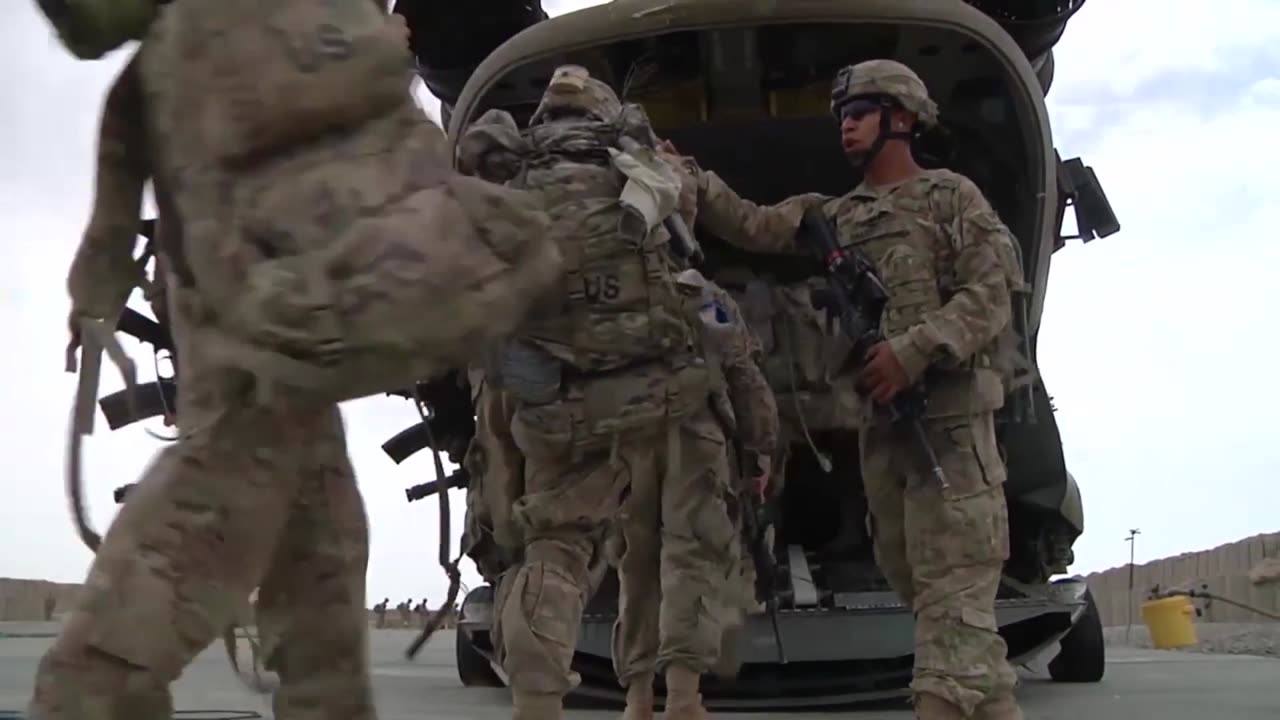Premium Only Content

ch-47f-chinook-helicopter-crews-in-action_41ghsxmjo_1080__D
Afghanistan is a landlocked country located in Central Asia, bordered by Pakistan to the east and south, Iran to the west, Turkmenistan, Uzbekistan, and Tajikistan to the north, and China to the northeast. Its capital and largest city is Kabul.
Here are some key points about Afghanistan:
History: Afghanistan has a rich and complex history that dates back thousands of years. It has been influenced by various empires, including the Persian Achaemenid Empire, Mauryan Empire, and the Islamic Caliphates. The region also experienced periods of self-rule, including the reign of the powerful Pashtun empire under Ahmad Shah Durrani in the 18th century.
Soviet-Afghan War: One of the significant events in recent Afghan history is the Soviet-Afghan War (1979-1989). The Soviet Union invaded Afghanistan to support a communist government, triggering a decade-long conflict. Afghan resistance fighters, known as the mujahideen, fought against Soviet forces with the support of the United States and other countries.
Taliban Rule: Following the Soviet withdrawal, Afghanistan fell into a period of civil war. In the 1990s, the Taliban, an Islamist militant group, emerged and gained control over most of the country. The Taliban imposed a strict interpretation of Islamic law, resulting in widespread human rights abuses, particularly targeting women and ethnic and religious minorities.
Post-9/11 and the War on Terror: In 2001, after the September 11 attacks in the United States, a U.S.-led coalition invaded Afghanistan to dismantle Al-Qaeda, which had found safe haven under the Taliban's rule. The coalition successfully ousted the Taliban from power, but the conflict evolved into a protracted war against insurgency.
Democratic Transition and Challenges: Since 2001, Afghanistan has undergone a challenging process of political transition and institution-building. The country held several presidential and parliamentary elections, and a new constitution was adopted in 2004. However, Afghanistan continues to face significant challenges, including ongoing conflict, political instability, corruption, poverty, and a struggling economy.
Afghan Society and Culture: Afghanistan is ethnically diverse, with the majority of the population being of Pashtun, Tajik, Hazara, and Uzbek backgrounds. Islam is the predominant religion, with Sunni Muslims comprise the majority. Afghan culture is influenced by various regional and historical factors, including Persian, Turkic, and Pashtun traditions.
Humanitarian Situation: Afghanistan has faced numerous humanitarian challenges, including displacement, food insecurity, lack of access to education and healthcare, and high levels of poverty. The situation has been further compounded by the ongoing conflict, natural disasters, and the recent withdrawal of international military forces.
It's important to note that the situation in Afghanistan is complex and constantly evolving. It's advisable to seek up-to-date and reliable sources for the most accurate and comprehensive information.
#Afghanistan
#AfghanistanConflict
#AfghanistanCrisis
#AfghanistanWar
#AfghanistanHistory
#AfghanistanCulture
#AfghanistanNews
#AfghanistanInsights
#AfghanistanPeace
#AfghanistanStrong
#AfghanistanBeauty
#AfghanistanPeople
#AfghanistanTravel
#AfghanistanPhotography
#AfghanistanHeritage
#AfghanistanRefugees
#AfghanistanDevelopment
#AfghanistanHope
#AfghanistanHumanitarian
#AfghanistanCulture
#AfghanistanMusic
#AfghanistanWomen
#AfghanistanEducation
#AfghanistanYouth
#AfghanistanArt
#AfghanistanDiversity
#AfghanistanArchitecture
-
 1:00
1:00
Congresswoman Harriet Hageman
4 hours agoCongresswoman Harriet Hageman Rumble Rollout
9.69K25 -

Scammer Payback
3 hours agoCalling Scammers Live
19.7K1 -
 13:08
13:08
RealitySurvival
8 hours agoNorth American Union - Why THIS IS A BAD Idea!
1.64K5 -
 DVR
DVR
Redacted News
3 hours agoWEF is in FULL PANIC MODE over Trump, LA wildfires a failure of liberal government | Redacted News
79.5K120 -
 DVR
DVR
vivafrei
8 hours agoInterview with Enrique Tarrio's Mother - Viva Frei Live
71.8K20 -
 53:07
53:07
Candace Show Podcast
3 hours agoBlake Lively VS Justin Baldoni: The Revenge of #MeToo | Candace Ep 128
64.2K67 -
 1:59:04
1:59:04
Darkhorse Podcast
5 hours agoFires, Facebook & Free Speech: The 259th Evolutionary Lens with Bret Weinstein and Heather Heying
48K20 -
 1:42:19
1:42:19
Film Threat
5 hours agoHOLLYWOOD IS ON FIRE! | Hollywood on the Rocks
21.3K3 -
 9:53
9:53
Gun Owners Of America
5 hours agoConstitutional Concealed Carry Reciprocity Introduced to Congress!
38.5K9 -
 1:52:31
1:52:31
The Quartering
6 hours agoTrump Hotel Attack Planned With ChatGPT, Wildfires Rage & Liberals Celebrate, Biden Roasts Kamala!
83.8K39